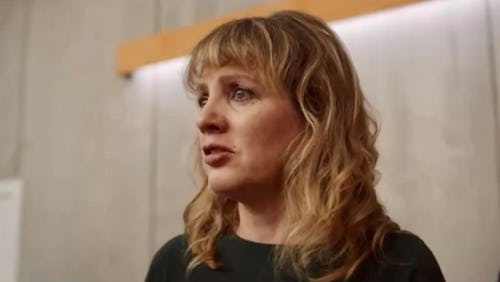Streaming
How Real Jurors Inspired Netflix's New Crime Thriller
"It was the jury duty that changed her life."
Netflix's new crime drama The Twelve (or De Twaalf) explores a murder case from a new angle. Rather than focusing on the accused — a woman who's on trial for the murder of her daughter and best friend — it follows the lives of the 12 jurors tasked with deciding her fate. It's a juicy tale, and though The Twelve isn't based on a true story, co-creators Bert Van Dael and Sanne Nuyens did talk to several former jurors while writing the show.
"We really wanted to get to know how it felt inside a jury room," they explained to Variety in 2019. "How much bias do we take with us? Every person has a background. How much of personal background defines our judgments? These were the ultimate questions for us while developing the series."
There was one woman, in particular, who really locked things into place. "One of the ex-jurors told us about her terrorizing husband while being on jury duty," Dael and Nutens continued. "She said she recognized traits of her jealous husband in the defendant and told us she feared ending up like the victim when she would stay with her husband. After her jury duty she finally had the courage to leave her husband. It was the jury duty that changed her life. But it was also her own personal life that found the defendant convicted."
Van Dael and Nuyens also drew inspiration from the ongoing discussion about what juries should look like in Belgium, where the show originally aired. "The previous government tried to eradicate the jury system in which twelve citizens decide upon guilt and penalty of the defendant because it basically was too expensive. They wanted a reduced system where three judges and four citizens would come to a decision. But it turned out to be unconstitutional," the co-creators told Variety. "We don’t think our show gives an answer to these questions. We think it raises the question more than answering it. But we do think that’s already a very valuable step. Maybe one day there will be a good answer to it."
This article was originally published on
